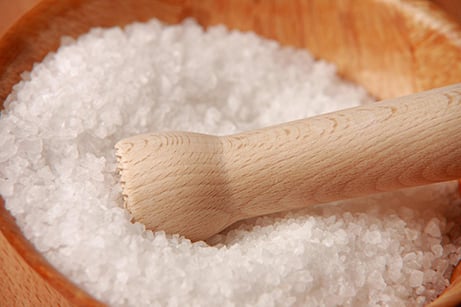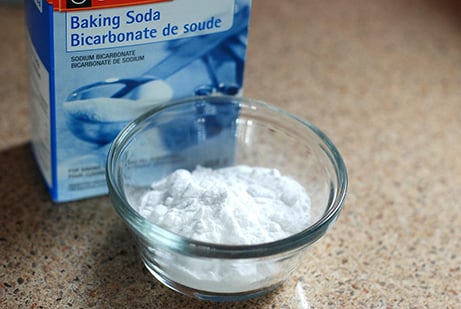From allergies to seasonal illnesses like the cold or flu, nasal problems can be an issue that hounds many people. The inflammation and congestion that sets in within the nasal passages and sinuses cause a great deal of discomfort, and, when this situation persists for weeks at a time, such as during allergy season, that discomfort can easily turn to outright misery. There are a wide number of ways in which allergy and cold symptoms can be eased, but here we’ll focus on one in particular: nasal rinsing.
Nasal rinsing is a well-established practice of clearing the nasal passages and sinuses, resulting in improvements to one’s health and overall comfort. In order to rinse out your nasal passages, you’ll need to use a saline rinse. Such products can easily be found at your neighborhood drugstore or the pharmacy section of various retailers, but making your own saline rinse at home is a simple matter.
That being said, when it comes to saline rinses, whether store bought or homemade, you’ll encounter information regarding both hypertonic and hypotonic solutions. To help you figure out which is right for you, we’ll discuss the nature of both types of saline solutions, how you can make them yourself, and the benefits you’ll gain from using a saline rinse.
It’s All About the Salt:
The terms hypertonic and hypotonic, in simplest terms, refer to the amount of salt found in a saline solution. Hypertonic refers to a solution with a high amount of salt whereas hypotonic refers to a solution with a very low amount of salt. It’s common to find both types of nasal rinses at a drugstore, as both come with their own particular benefits depending on the precise symptoms you have.
As hypertonic solutions come with a higher salinity level, they’re often marketed as a relief for runny noses and excessive mucus congestion. The idea here is that the higher amount of salt will help to reduce the moisture level in the nasal passages from excessive to normal. However, it’s important to understand that using such rinses too much or when a runny nose is not an issue could lead to an overproduction of mucus in response to the depletion of moisture within the nasal passages.
Hypertonic solutions also cause irritation and burning sensations for some people, as the high amount of salinity is often overpowering, particularly for those who are exhibiting a lot of inflammation and sensitivity. In such cases, hypertonic solutions should be avoided.
Hypotonic solutions are great for those who may have more sensitive nasal passages, either as a normal occurrence or due to allergy or cold symptoms. This may also be a preferred option for casual nasal rinsing, as the lower level of salinity is less likely to cause the nasal passages to dry out.
Making Your Own Nasal Rinse:
Creating a nasal rinse at home is incredibly easy and only requires water, non-iodized salt, and baking soda. The ratio that you should work with is half a teaspoon each of salt and baking soda to one cup of water.
The only truly important thing to remember is that the water needs to be distilled or boiled before use, as this ensures that you’re introducing sterile water to your nasal passages and sinuses. Regular water from your tap that hasn’t been boiled could contain bacteria that, when introduced into your nasal passages, could lead to serious medical conditions. As long as you remember this rule, nasal rinses will remain safe and easy to use.
If you want to create a hypertonic solution, then you can mix about two teaspoons, no more than three – with a teaspoon of baking soda and a liter of water. When using a hypertonic rinse, do a small test run first with just a little bit of the rinse to see if it causes any irritation. You can also start with a lower salinity rinse, first, and see if that solves your nasal issues. If you experience no great change, then you can always increase the salinity.
Are There Real Benefits with Nasal Rinses?
Nasal rinses aren’t meant as a cure-all, but they are known to help relieve certain nasal symptoms related to allergies and seasonal illnesses. Those with allergies, in particular, may benefit from nasal rinsing as it helps to remove allergens from the nasal passages that trigger the production of inflammatory histamine.
Using a nasal rinse can also enable you to cut back on the use of medications used to combat your nasal symptoms. Some people even use nasal rinses in order to help them snore less and breathe better at night while sleeping.



